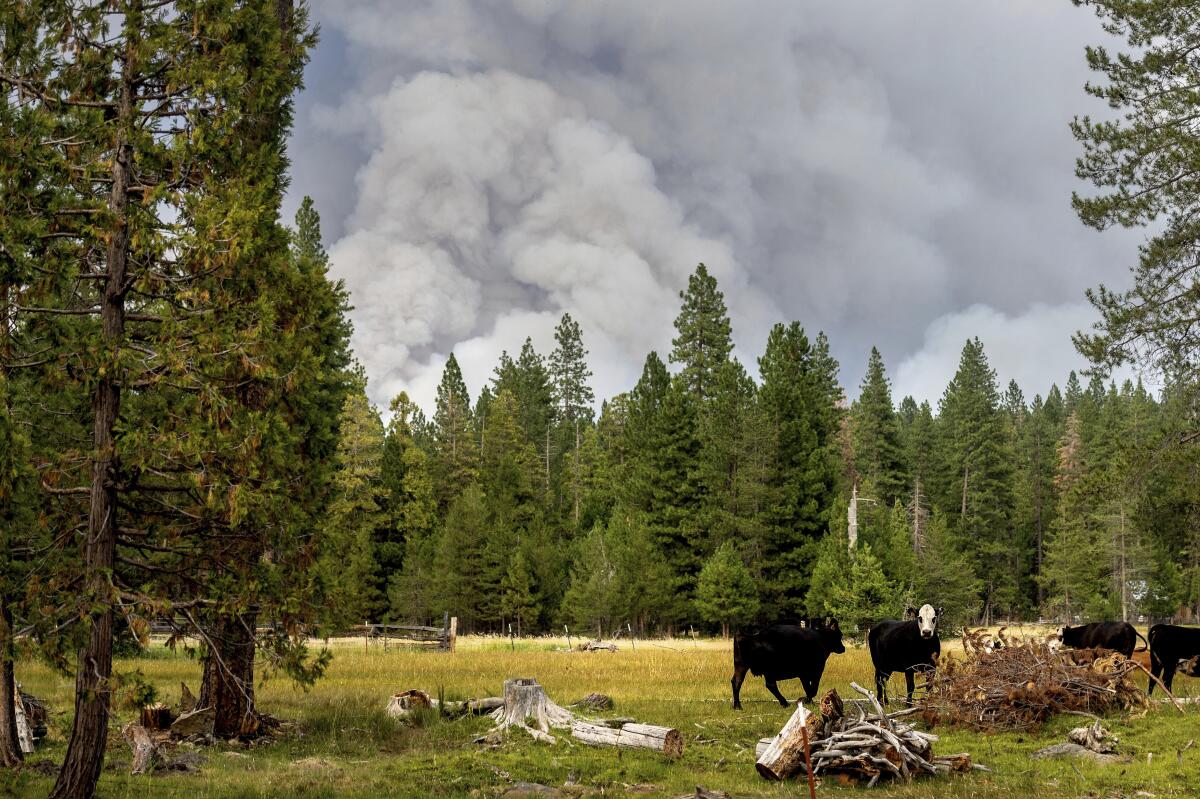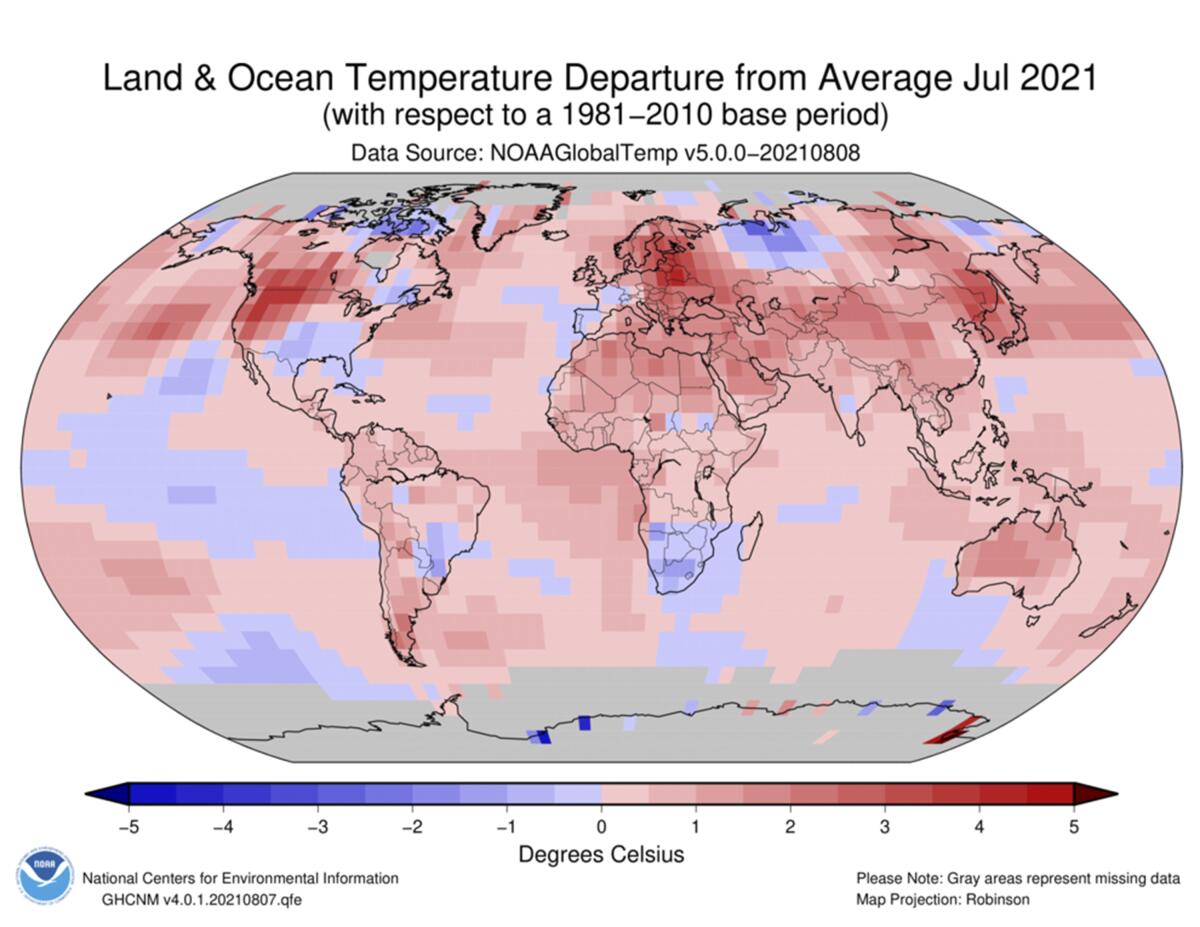July was Earth’s hottest month on record, NOAA says

- Share via
Earth sizzled in July and became the hottest month in 142 years of recordkeeping, U.S. weather officials announced Friday.
As extreme heat waves struck parts of the United States and Europe, the globe averaged 62.07 degrees Fahrenheit (16.73 degrees Celsius) last month, beating the previous record set in July 2016 and tied again in 2019 and 2020, according to the National Oceanic and Atmospheric Administration. The margin was just .02 degrees (.01 Celsius).
The last seven Julys, from 2015 to 2021, have been the hottest seven Julys on record, said NOAA climatologist Ahira Sanchez-Lugo. Last month was 1.67 degrees (0.93 degrees Celsius) warmer than the 20th century average for the month.
“In this case first place is the worst place to be,” NOAA Administrator Rick Spinrad said in a statement. “This new record adds to the disturbing and disruptive path that climate change has set for the globe.”
Record heat. Raging fires. What are the solutions?
Get Boiling Point, our newsletter about climate change, the environment and building a more sustainable California.
You may occasionally receive promotional content from the Los Angeles Times.
“This is climate change,” said Pennsylvania State University climate scientist Michael Mann. “It is an exclamation mark on a summer of unprecedented heat, drought, wildfires and flooding.”
Earlier this week, a prestigious United Nations science panel warned of worsening climate change caused by the burning of coal, oil and natural gas and other human activity.

Warming on land in western North America and in parts of Europe and Asia really drove the record-setting heat, Sanchez-Lugo said. While the worldwide temperature was barely higher than the record, what shattered it was land temperature over the Northern Hemisphere, she said.
Northern Hemisphere temperatures were a third of a degree (0.19 degrees Celsius) higher than the previous record set in July 2012. For temperature records, that’s “a wide margin,” Sanchez-Lugo said.
July is the hottest month of the year for the globe, so this is also the hottest month on record.
The dire report from the IPCC doesn’t mean you should give up on reversing climate change. Here’s how you can still make a difference.
One factor helping the world bake this summer is a natural weather cycle called the Arctic Oscillation. It’s sort of a cousin to El Niño, and in its positive phase, it’s associated with more warming, the NOAA climatologist said.
Even with a scorching July and a nasty June, this year so far is only the sixth warmest on record. That’s mostly because 2021 started out cooler due to a La Niña cooling of the central Pacific that often reduces the global temperature average, Sanchez-Lugo said.
“One month by itself does not say much, but that this was a La Niña year and we still had the warmest temperatures on record ... fits with the pattern of what we have been seeing for most of the last decade now,” said University of Illinois meteorology professor Donald Wuebbles.
The world set a record in July, but the United States only tied for its 13th hottest July on record.
Climate change is making the world more prone to floods like those in China and Europe and to heat waves and fires like those in the U.S. and Russia.
Even though California, Nevada, Oregon and Washington had their hottest Julys, slightly cooler than normal months in Texas, Oklahoma, Kansas, Arkansas, Missouri, Alabama, Maine, Vermont and New Hampshire kept the nation from approaching record heat levels.
The last time the globe had a July cooler than the 20th century average was in 1976, which was also the last year the globe was cooler than that normal.
“So if you’re younger than 45 you haven’t seen a year (or July) where the mean temperature of the planet was cooler than the 20th century average,” said Princeton University climate scientist Gabriel Vecchi.










